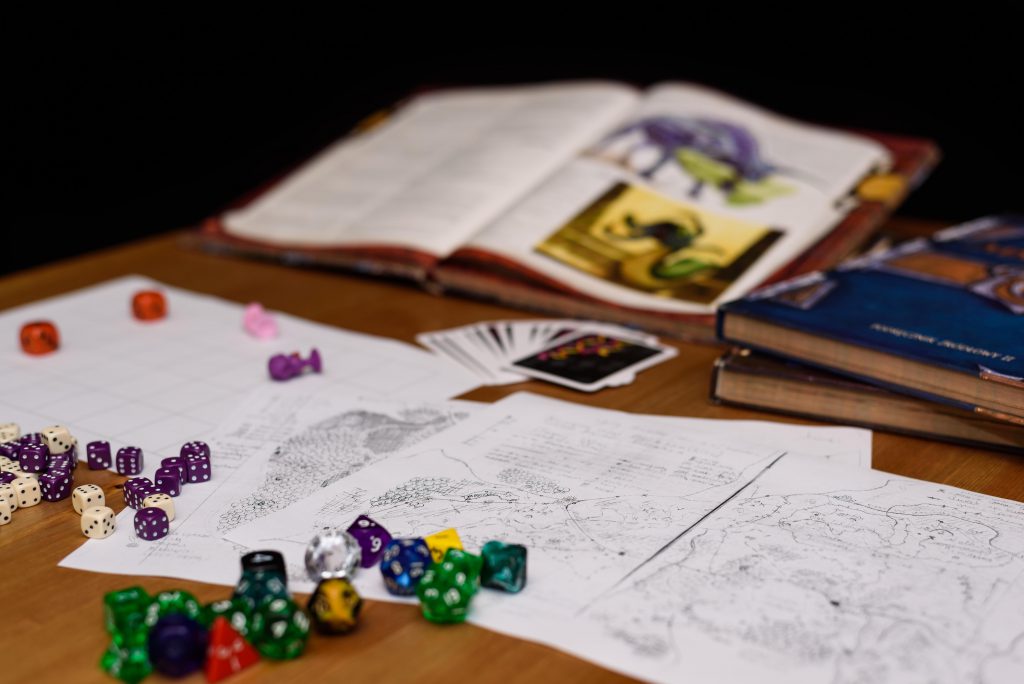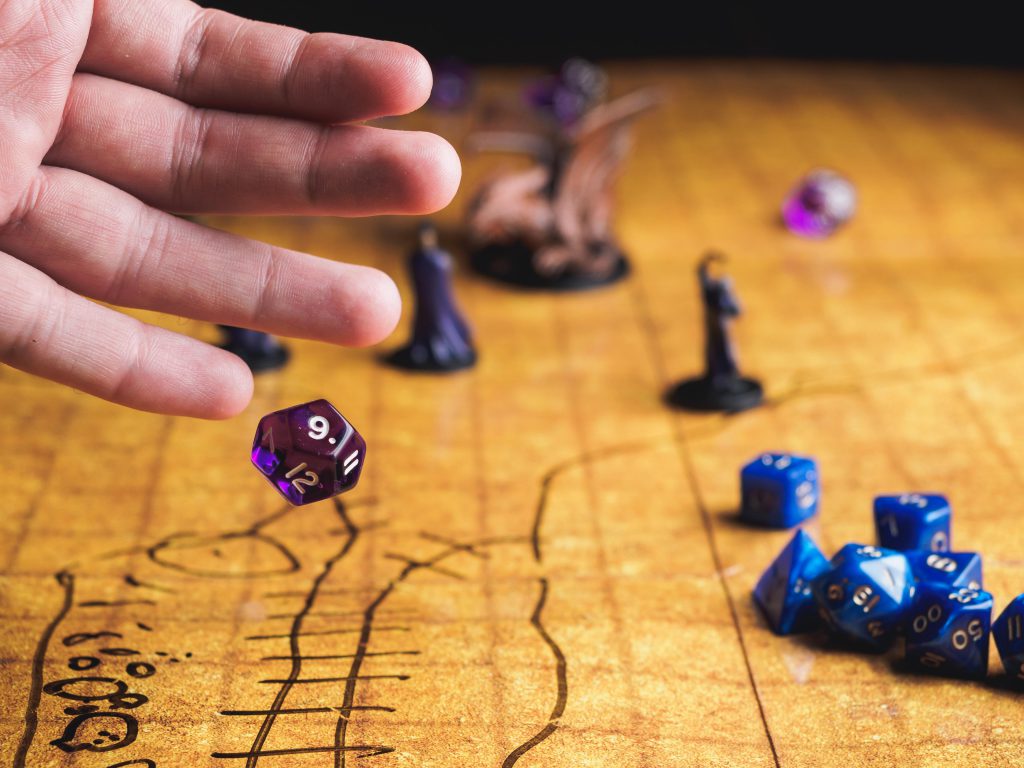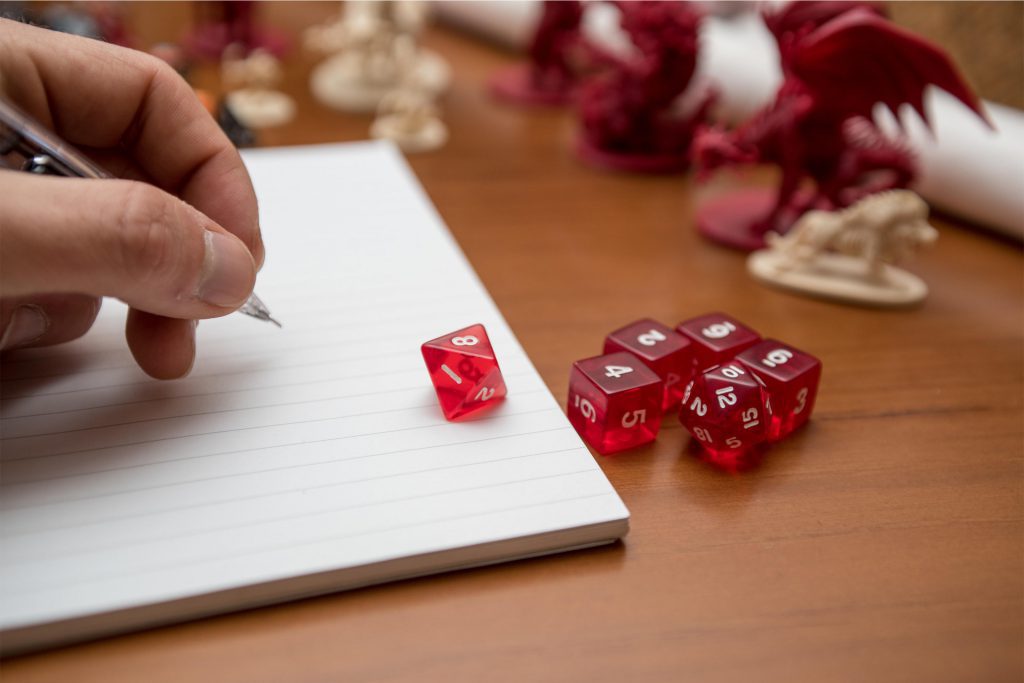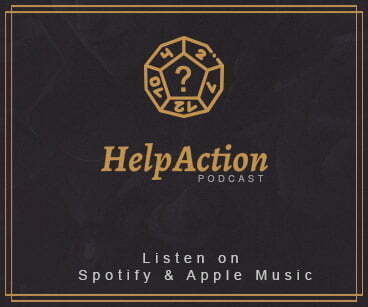How the Fastest Part of the Game Becomes the Slowest Part of the Game.
Your party walks into a seedy tavern. Every corner of the place is occupied by a cloaked figure; hood drawn, brooding, hoping an adventuring party will wander in seeking quests from random ominous strangers. Unfortunately, someone looked at your half-orc barbarian the wrong way, and now the entire bar breaks out into a brawl.
Roll for Initiative, and Get Ready to Wait 20 Minutes for Your Turn.
Combat is one of the core features of Dungeons and Dragons, and yet, in my experience, it’s also when players are most likely to check out and start looking at their phones.
Each round of combat represents just six seconds passing in-game, but it rarely feels like that: the more epic the encounter, the longer it takes to get back to your turn. This means the encounters you’ve put the most effort into are also the ones most likely to lose your players’ attention—and, too often, feel like a slog for you, too.
There’s no unerring magic missile to keep people’s heads in the game—sometimes it’s going to be a little slow, and that’s okay. But there are ways to keep people engaged and enjoying the encounter, including you! Here are some tips for both players and DMs.

Table of Contents
Know What Your Character Does
I’m going to say this again, cause it’s super important: Know What Your Character Does! This may be the biggest fix. Whether you’re a player or the DM, knowing the ins and outs of who you’re controlling is vital. It’s your responsibility to know how your character’s spells, abilities, and combat mechanics work. Knowing, at least, what your character’s main build mechanic is really helps. Whether this is your first time playing or your hundredth, doing a little homework really pays off. It’s a good idea to spend a few minutes before sessions catching up on your stats, and making a few quick notes. Spend time outside of the game reading up on things. Make quick notes for yourself, or ask your DM things between sessions for clarification. Learning the basics of what actions you can do in combat also goes a really long way (did you know there’s a shove action that nobody ever uses?). For both players and DMs, cutting down on time spent consulting handbooks during combat will be a major time-saver.
Make “If, Then” Plans When It’s Not Your Turn
A lot of stuff happens in those six short seconds. While you can’t always predict how the map will look when it’s finally your turn, you can at least make some educated guesses. So you might say “if I get surrounded on my turn, I’ll Misty Step, then fire two shots into the lowest HP bad guy,” “if our party warlock gets dropped again (because they think they’re a tank, sigh), I’ll be ready to move and heal them.” And so on. When it’s not your turn, make contingency plans like you’re Batman. You’ll still have to sometimes make “spur of the turn” moves, but if you know what your character does… *cough see above cough*

Use The Average Damage
This one is for DMs. Every monster, 3rd party or otherwise, has average damage listed with all their attacks. While it is extremely menacing to roll 12d6 at the table and watch your players freak out, DMs using the average damage can cut down on a lot of their time. The more monsters in combat, the more die rolls, the more time it takes. Being a great DM means knowing when it doesn’t matter much, and when it’s worth the extra time to pull out your second bag of dice and strike fear into your players’ hearts.
Save the Description For When You Kill Something
A lot of players like to describe every attack and spell they do with a 10-30 second explanation. Creativity like that is the heart of RPGs, and you should absolutely encourage it—it keeps people engaged. However, doing it for every attack takes a lot of time. Instead, reserve those creative descriptions for when players defeat something. If your players know in advance that you’ll say “okay, tell me how you kill this thing” when the last hit point is gone, they’ll look forward to a fun moment to shine, an excuse to be as creative as they want, and more streamlined combat. A win for everyone (except your unfortunate coven of necromancers, of course)!

Assign Extra Tasks/NPCs
When you have extra party-allied NPCs kicking around the combat, pass them off to other players. Have one of your players keep track of how much damage your party does in combat, or assign the bard to pick the perfect (not played too loudly) song for this combat. It may seem like busy work, but it keeps everyone engaged.
Use A Separate Chat for Out-of-Character Talk
This is for those of you playing your games online. Use a separate chat for all of your out-of-game talk. Chances are if you have a question like “What did the DM just say, I wasn’t paying attention” or “should I focus on healing or hitting right now, team?” another player knows the answer. Keeping out-of-game chat separated from the main game keeps the focus on staying in character and maintaining the atmosphere. This is also handy for the “hey guys, I found a meme that weirdly resonates with what we’re doing” situation.
As with any collaborative game, the important part is that you communicate with your group. As a DM, letting people know beforehand how the game is going to go isn’t a spoiler or tipping your hand, it’s setting their expectations and giving everyone a chance to play their character the way they want. As the DM, you control the whole experience—not just the play-for-play and the roleplaying, but the atmosphere at the table and the group dynamic. At the heart of it all, you’re not just setting the stage for a throwdown in a pub full of secret lycanthropes, you’re creating a space for you and your friends or clients to have an enjoyable few hours together.
We’d love to hear other tips people have implemented. Leave us a comment with what has been successful for your party!
